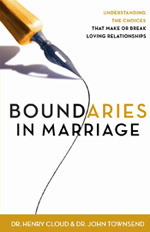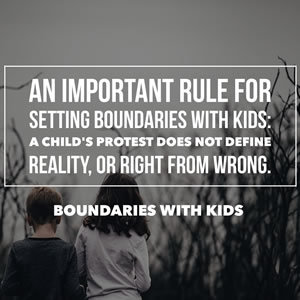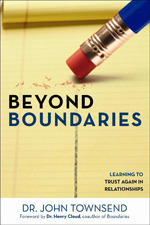Henry Cloud's Blog, page 15
March 20, 2017
Raising Kids with an Eye on the Future
 It was a normal day, but one that would forever change my friend’s parenting. We had finished dinner, and I (Dr. Cloud) was visiting with my friend, Allison, and her husband, Bruce, when she left the dinner table to do some chores. Bruce and I continued to talk until a phone call took him away as well, so I went to see if I could lend Allison a hand.
It was a normal day, but one that would forever change my friend’s parenting. We had finished dinner, and I (Dr. Cloud) was visiting with my friend, Allison, and her husband, Bruce, when she left the dinner table to do some chores. Bruce and I continued to talk until a phone call took him away as well, so I went to see if I could lend Allison a hand.
I could hear her in their 14-year-old son Cameron’s room. I walked in to a scene that jolted me. She was cheerfully putting away clothes and sports equipment and making the bed. She struck up a conversation as if things were normal: “I can’t wait for you to see the pictures from our trip. It was so much—” “What are you doing?” I asked. “I’m cleaning up Cameron’s room,” she said. “What does it look like I’m doing?” “You are what?” “I told you. I’m cleaning up his room. Why are you looking at me like that?” All I could do was to share with her the vision in my head. “I just feel sorry for Cameron’s future wife.”
Allison straightened up, froze for a moment, and then hurried from the room. I walked into the hall to see her standing there motionless. Not knowing what to say, I said nothing. After a few moments, she looked at me and said, “I’ve never thought about it that way.”
Nor have most of us. We parent in the present without thinking about the future. We usually deal with the problems at hand. But one goal of parenting is to keep an eye on the future. We are raising our children to be responsible adults. Parents interact with their children in a way that comes naturally to them.
For example, Allison was by nature a “helper,” and she gladly helped her son. Others have different parenting styles. Some, who are more laid back and uninvolved, leave their son’s room alone. Those who are stricter inflict heavy punishment for a less than regulation-made bed.
Certainly, child rearing requires many different interventions. There are times for helping, for not getting involved, or for being strict. But the real issue is this: Is what you are doing being done on purpose? Or are you doing it from reasons that you do not think about, such as your own personality, childhood, need of the moment, or fears? Remember, parenting has to do with more than the present. You are preparing your child for the future, and a person’s character is one’s destiny.
Question for Reflection:
In what ways could you parent your son or daughter with a stronger focus on their future? What changes could you make this week to move in that direction?
________
 Learn more about how to instill the kind of character in your children that will help them lead balanced, productive, and fulfilling lives in Boundaries with Kids.
Learn more about how to instill the kind of character in your children that will help them lead balanced, productive, and fulfilling lives in Boundaries with Kids.
The post Raising Kids with an Eye on the Future appeared first on Boundaries Books.
March 14, 2017
A Little Boundary Clarification Goes a Long Way
 The parents of a twenty-five-year-old man came to see me (Dr. Townsend) with a common request: they wanted me to “fix” their son, Bill.
The parents of a twenty-five-year-old man came to see me (Dr. Townsend) with a common request: they wanted me to “fix” their son, Bill.
When I asked where Bill was, they answered, “Oh, he didn’t want to come.”
“Why?” I asked.
“Well, he doesn’t think he has a problem,” they replied.
“Maybe he’s right,” I said, to their surprise. “Tell me about it.”
They recited a history of problems that had begun at a very young age. Bill had never been “quite up to snuff” in their eyes. In recent years he had exhibited problems with drugs and an inability to stay in school and find a career.
It was apparent that they loved their son very much and were heartbroken over the way he was living. They had tried everything they knew to get him to change and live a responsible life, but all had failed. He was still using drugs, avoiding responsibility, and keeping questionable company.
They told me that they had always given him everything he needed. He had plenty of money at school so “he wouldn’t have to work and he would have plenty of time for study and a social life.” When he flunked out of one school, or stopped going to classes, they were more than happy to do everything they could to get him into another school, “where it might be better for him.”
After they had talked for a while, I responded: “I think your son is right. He doesn’t have a problem.” You could have mistaken their expression for a snapshot; they stared at me in disbelief for a full minute. Finally the father said, “Did I hear you right? You don’t think he has a problem?”
“That’s correct,” I said. “He doesn’t have a problem. You do. He can do pretty much whatever he wants, no problem. You pay, you fret, you worry, you plan, you exert energy to keep him going. He doesn’t have a problem because you have taken it from him. Those things should be his problem, but as it now stands, they are yours. Would you like for me to help you help him to have some problems?” They looked at me like I was crazy, but some lights were beginning to go on in their heads.
“What do you mean, ‘help him to have some problems’?” his mother asked.
“Well,” I explained, “I think that the solution to this problem would be to clarify some boundaries so that his actions cause him problems and not you.”
“What do you mean, ‘boundaries’?” the father asked.
“Look at it this way. It is as if he’s your neighbor, who never waters his lawn. But, whenever you turn on your sprinkler system, the water falls on his lawn. Your grass is turning brown and dying, but Bill looks down at his green grass and thinks to himself, ‘My yard is doing fine.’ That is how your son’s life is. He doesn’t study, or plan, or work, yet he has a nice place to live, plenty of money, and all the rights of a family member who is doing his part.
“If you would define the property lines a little better, if you would fix the sprinkler system so that the water would fall on your lawn, and if he didn’t water his own lawn, he would have to live in dirt. He might not like that after a while. As it stands now, he is irresponsible and happy, and you are responsible and miserable. A little boundary clarification would do the trick. You need some fences to keep his problems out of your yard and in his, where they belong.”
“Isn’t that a bit cruel, just to stop helping like that?” the father asked.
“Has helping him helped?” I asked.
His look told me that he was beginning to understand.
Boundaries define us. They define what is me and what is not me. A boundary shows me where I end and someone else begins, leading me to a sense of ownership.
Knowing what I am to own and take responsibility for gives me freedom. If I know where my yard begins and ends, I am free to do with it what I like. Taking responsibility for my life opens up many different options. However, if I do not “own” my life, my choices and options become very limited.
Think how confusing it would be if someone told you to “guard this property diligently, because I will hold you responsible for what happens here,” and then did not tell you the boundaries of the property. Or they did not give you the means with which to protect the property? This would be not only confusing but also potentially
dangerous.
This is exactly what happens to us emotionally and spiritually, however. God designed a world where we all live “within” ourselves; that is, we inhabit our own souls, and we are responsible for the things that make up “us.” “The heart knows its own bitterness, and no one shares its joy” (Prov. 14:10). We have to deal with what is in our soul, and boundaries help us to define what that is. If we are not shown the parameters, or are taught wrong parameters, we are in for much pain.
The Bible tells us clearly what our parameters are and how to protect them, but often our family, or other past relationships, confuses us about our parameters.
In addition to showing us what we are responsible for, boundaries help us to define what is not on our property and what we are not responsible for.
________
Click here to learn more about The New York Times bestseller Boundaries.
The post A Little Boundary Clarification Goes a Long Way appeared first on Boundaries Books.
March 7, 2017
The Secret to a Successful Marriage (Hint: It Involves Boundaries)
 When two people marry, two lives blur together to make a new one, two become one. The blurring of expectations and feelings can become an issue. Many times a spouse will automatically expect that the love in the marriage means that her spouse will always see things her way. She may feel unloved when her otherwise-loving mate says, “No, I’d rather not take a walk. I’m sleepy.” Sometimes this happens during the “honeymoon period,” when both parties tend to see eye-to-eye on everything. But when the reality of two different wills, needs, and perspectives comes in, the honeymoon is over. This is when the Law of Respect must be applied.
When two people marry, two lives blur together to make a new one, two become one. The blurring of expectations and feelings can become an issue. Many times a spouse will automatically expect that the love in the marriage means that her spouse will always see things her way. She may feel unloved when her otherwise-loving mate says, “No, I’d rather not take a walk. I’m sleepy.” Sometimes this happens during the “honeymoon period,” when both parties tend to see eye-to-eye on everything. But when the reality of two different wills, needs, and perspectives comes in, the honeymoon is over. This is when the Law of Respect must be applied.
For example, a couple with whom my wife and I (Dr. Cloud) are close, Nick and Colleen, mentioned the same problem at dinner one night. Nick said, “Sometimes Colleen withdraws from me for no reason at all.”
“There is a reason,” Colleen replied. “When I try to say no to you and you try to control me, I withdraw.” Nick said, “I don’t try to control you when you say no.” Colleen let it go and said, “I guess we have a difference of opinion.”
The conversation drifted to other subjects. Later that evening, Nick invited me to a ball game a couple of weeks from then. I checked my schedule and said, “Sorry, I can’t.” Nick threw up his arms in mock exasperation and said, “Oh, come on, you can go! Just rearrange things a little. That’s what friends do.”
Colleen had been watching, and she yelled, “There it is! There it is! That’s how he controls my no!” Nick looked surprised and said, “I do what?”
“She’s right, Nick,” I said. “I felt the pressure of not being able to say no.” The light went on for Nick as he saw how his desire for good things sometimes crossed the line of respect.
When you apply the Law of Respect in your marriage, don’t storm into the living room with a list of “how things are going to change around this house.” Tell your spouse you want your boundaries respected, and ask him if he feels his are being respected also. Let him know that you value and desire him to be free to say no, even if you don’t like the answer. Ask him some of the following questions:
How might I be crossing your boundaries?
Do you feel I respect your right to say no to me?
Do I give you guilt messages, withdraw, or attack you when you set a limit?
Will you let me know the next time I don’t respect your freedom?
These humbling and uncomfortable questions show you are concerned for your spouse more than for your own convenience. They arise out of self-sacrifice, and they show your generosity of spirit and love. And they can bind your marriage together.
If your spouse is trustworthy, it is easier to ask these questions. If your spouse is untrustworthy, you may feel you are putting yourself in the hands of someone who might use your respect for him against you. However, even untrustworthy people need to have their legitimate needs and boundaries respected. This doesn’t mean, though, allowing yourself to be harmed if the spouse is unsafe. Respect his boundaries and still set limits on his untrustworthiness.
An example of this balance is how a wife might approach her rageaholic husband. She should not dictate to him that he can’t be angry; she should respect his freedom to protest what he does not like. At the same time, however, she might tell him, “Your raging way of being angry is not acceptable to me. If you don’t find other ways of being angry with me, I will have to distance from you.”
Respecting and valuing your mate’s boundaries is the key to being close and loving. Your spouse experiences the gift of freedom from you and sees the love you are extending in giving this freedom. When you respect your spouse’s boundaries, you are paving the way to having yours respected.
________
 Learn how to help your marriage flourish by reading Boundaries in Marriage.
Learn how to help your marriage flourish by reading Boundaries in Marriage.
Couples image courtesy of Rosen Georgiev at FreeDigitalPhotos.net
The post The Secret to a Successful Marriage (Hint: It Involves Boundaries) appeared first on Boundaries Books.
February 28, 2017
Your Child’s Pain Should Not Control Your Actions
 Boundaries with kids begins with parents having good boundaries of their own. Purposeful parents stay in control of themselves. If your child is controlling your decisions by protesting your boundaries, you are no longer parenting with purpose.
Boundaries with kids begins with parents having good boundaries of their own. Purposeful parents stay in control of themselves. If your child is controlling your decisions by protesting your boundaries, you are no longer parenting with purpose.
Terri was having problems with her thirteen-year-old son Josh not doing his homework. I helped her come up with a plan that would require Josh to set aside a certain time each night to do homework. During this hour Josh had to be in his study place with nothing else but his work, and he was not to do anything else but study. Terri had no control over whether or not Josh actually chose to study during that time. What she could control was that he do nothing else during that time but sit with his homework.
When I saw her the next time, Terri looked sheepish. She had not lived up to her end of the plan. “What happened?” I asked. “Well, we were all set, and then he got invited to go to a baseball game with his friend. I said no, that his hour was not up yet. But he got so upset, I could not talk him out of it. He seemed so mad and sad.”
“So,” I said, “that’s what he’s supposed to do, remember? He hates discipline. So what did you do next?”
“Well, I could see that this requirement was just making him too sad, and I could not stand it. So I let him go.” (Clue number one that a child will not develop self-control is when the parent does not have self-control in enforcing the rules.)
“What happened the next night?” I asked, already knowing the answer.
“He got upset again. It was a similar situation. He had an opportunity that would have been very sad to miss.”
“So let me get this straight. The way you are deciding what is right or not is by how he feels when he is required to do something. If he is upset, then you think it is the wrong thing to do. Is that right?”
“I haven’t thought about it that way, but I guess you’re right. I just can’t stand for him to be sad.”
“Then you have got to come to grips with a few important truths. One, your values are being set by the emotional reactions of an immature thirteen-year-old. Your value system’s highest guiding principle is whether or not Josh is upset. Two, you don’t value one of the most important aspects of child rearing: Frustration is a key ingredient to growth. The child who is never frustrated never develops frustration tolerance. Three, you are teaching him that he is entitled to always be happy and that all he has to do to get others to do what he wants is to cry about it. Are these really your values?”
She grew silent and began to realize what she was doing. To change, she had to commit to an important rule for setting boundaries with kids: A child’s protest does not define reality, or right from wrong. Just because your child is in pain does not mean that something bad is happening. Something good may be occurring, such as his coming to grips with reality for the first time. And this encounter with reality is never a happy experience. But if you can empathize with the pain and hold on to the limit, your child will internalize the limit and ultimately get over the protest.
This is a law of the universe. Frustration and painful moments of discipline help a child learn to delay gratification, one of the most important character traits a person can have. If you are able to hold the limit and empathize with the pain, then character will develop. But if you don’t, you will have the same battle tomorrow. If you rescue your children from their anger at your boundary, you can plan on more anger at later limits. Remember, their protest or pain does not determine what is good.
________
 Learn how to instill the kind of character in your children that will lead to a balanced, productive, and fulfilling life in Boundaries with Kids.
Learn how to instill the kind of character in your children that will lead to a balanced, productive, and fulfilling life in Boundaries with Kids.
The post Your Child’s Pain Should Not Control Your Actions appeared first on Boundaries Books.
February 10, 2017
Common Signs of a Lack of Boundaries with Family
 Let’s look at some common signs of a lack of boundaries with the family we grew up in.
Let’s look at some common signs of a lack of boundaries with the family we grew up in.
Catching the Virus
A common scenario is this: one spouse doesn’t have good emotional boundaries with the family he grew up in — his family of origin. Then when he has contact with them by phone or in person, he becomes depressed, argumentative, self-critical, perfectionistic, angry, combative, or withdrawn. It is as though he “catches” something from his family of origin and passes it on to his immediate family.
His family of origin has the power to affect his new family in a trickle-down effect. One sure sign of boundary problems is when your relationship with one person has the power to affect your relationships with others. You are giving one person way too much power in your life.
I remember one young woman who made steady gains in therapy until she talked to her mother, when she would withdraw for three weeks. She would say things like, “I’m not changing at all. I’m not getting any better.” Fusing with many of her mother’s ideas about her, she wasn’t able to stay separate. This fusion with her mother affected her other relationships. She virtually shut everyone out of her life after an interaction with her mother. Her mother owned her life; she was not her own.
Second Fiddle
“You wouldn’t believe how she is with him,” Dan said. “She totally focuses on his every wish. When he criticizes her, she tries harder. And she practically ignores me. I’m tired of being the ‘second man’ in her life.”
Dan wasn’t talking about Jane’s lover. He was talking about her father. Dan was tired of feeling like Jane cared more about her father’s wishes than his.
This is a common sign of a lack of boundaries with family: the spouse feels like he gets leftovers. He feels as if his mate’s real allegiance is to her parents. This spouse hasn’t completed the “leaving before cleaving” process; she has a boundary problem. God has designed the process whereby a “man shall leave his father and his mother and shall cleave to his wife; and they shall become one flesh” (see Genesis 2:24). The Hebrew word for “leave” comes from a root word that means to “loosen,” or to relinquish or forsake. For marriage to work, the spouse needs to loosen her ties with her family of origin and forge new ones with the new family she is creating through marriage.
This does not mean that husbands and wives shouldn’t have a relationship with their extended families. But they do need to set clear boundaries with their families of origin. Many marriages fail because one partner fails to set clear boundaries with family, and the spouse and children get leftovers.
May I Have My Allowance, Please?
Terry and Sherry were an attractive couple. They owned a big house and went on lavish vacations; their children took piano lessons and ballet, and they had their own skis, roller blades, ice skates, and wind surfers. Terry and Sherry had all the trappings of success. But, there was one problem. This lifestyle was not supported by Terry’s paycheck. Terry and Sherry received much financial help from his family.
Terry’s family had always wanted the best for him, and they had always helped him get it. They had contributed to the house, the vacations, and the children’s hobbies. While this allowed Terry and Sherry to have things they could not otherwise have, it cost them dearly as well.
The periodic bailouts from his parents cut into Terry’s self-respect. And Sherry felt as if she couldn’t spend any money without consulting her in-laws, since they contributed the funds.
Terry illustrates a common boundary problem for young adults today, both married and single: he was not yet an adult financially. He could not set boundaries on his parents’ desire for him and Sherry to “have everything we have.” He also found that he had so fused with their ideas of success that he had trouble saying no to these wishes in himself. He wasn’t sure he wanted to forsake the gifts and handouts for a greater sense of independence.
Terry’s story is the “up” side of the financial boundary problem. There is also the “I’m in trouble” side. Many adult children perpetually get into financial messes because of irresponsibility, drug or alcohol use, out-of-control spending, or the modern “I haven’t found my niche” syndrome. Their parents continue to finance this road of failure and irresponsibility, thinking that “this time they’ll do better.” In reality, they are crippling their children for life, preventing them from achieving independence.
An adult who does not stand on his own financially is still a child. To be an adult, you must live within your means and pay for your own failures.
_______
 For more signs of a lack of Boundaries with family, read chapter 7, Boundaries and Your Family, in Boundaries.
For more signs of a lack of Boundaries with family, read chapter 7, Boundaries and Your Family, in Boundaries.
The post Common Signs of a Lack of Boundaries with Family appeared first on Boundaries Books.
January 23, 2017
Why Should I Say No to Physical Intimacy?
 If you have hung around the church for very long, you have probably heard that God wants people to reserve physical intimacy for marriage. If you haven’t and that is news to you, then we can understand the shock you might be feeling. For many people, both inside and outside of the church, it does not make sense. If it feels so good, and is good for the relationship, and both people are consenting, then what is the problem?
If you have hung around the church for very long, you have probably heard that God wants people to reserve physical intimacy for marriage. If you haven’t and that is news to you, then we can understand the shock you might be feeling. For many people, both inside and outside of the church, it does not make sense. If it feels so good, and is good for the relationship, and both people are consenting, then what is the problem?
Consider this viewpoint: When someone can say no to sex outside of marriage, their behavior is a sign that he or she is capable of delaying gratification and exhibiting self-control, which are two prerequisites of the ability to love. If someone cannot delay gratification and control himself or herself in this area, what makes you think that they can delay their own gratification in other areas of sacrifice? What is going to curb the “I want what I want now” mentality in the rest of life? If someone is able to respect the limit of hearing no for sex, then that is a character sign of someone who can say no to their own desires and hungers in order to serve a higher purpose, or to love another person.
You fall in love with a person and think about making a real, committed relationship with him or her. Naturally, that is going to mean some sacrifice down the road. You are going to want to be with a person who can deny himself or herself for the sake of your relationship in many areas. Think of the areas of sacrifice that a relationship takes. There are sacrifices of time, when you might want to spend time on your favorite hobby, and yet the family needs you. There are sacrifices of money. One person may want to buy a new car, and yet the family needs money for the home. There are sacrifices of getting one’s way. One person may want to go to one place for dinner and the others want something different.
Most importantly, there is the sacrifice that it takes to work out conflict. One person is hurt and wants to strike back in anger or hurt, yet to reconcile, the ability to put one’s own desires aside for the sake of the relationship is necessary. If someone does not have self-control and delay of gratification in pleasure, can they delay the gratification of getting his or her own way in conflict?
Think about it. Wouldn’t you want to be with a person who can hear and respect the “no” of others? Having a boundary in sex while you are dating is a very important test to see if the person loves you. We have all heard people refer to the line “If you love me, you will.” In reality, you should say back, “If you love me, you won’t make demands that I do not feel comfortable with.” Love waits and respects, but lust must have what it wants now. Are you being loved, or are you an object of self-serving lust? Saying no is the only way to know.
We cannot overemphasize the value of dating and marrying a person who can delay their own gratification. If you are with someone who ultimately has to have what they want when they want it, you are in for a long time of misery. Choose someone who can delay gratification for the sake of you and the relationship. To the extent that he or she says, “I must have what I want now,” you are in trouble. Boundaries with sex are a sure-fire test to know if someone loves you for you.
________
 Get more helpful advice to build the best dating relationship and find the love of your life in Boundaries in Dating by Dr. John Townsend and Dr. Henry Cloud.
Get more helpful advice to build the best dating relationship and find the love of your life in Boundaries in Dating by Dr. John Townsend and Dr. Henry Cloud.
The post Why Should I Say No to Physical Intimacy? appeared first on Boundaries Books.
January 9, 2017
Sizzling Passion and the Myth of Hollywood Romance
 To some extent, our society is afflicted by a Hollywood distortion about relationships. Don’t get me wrong—I’m (Dr. Townsend) not anti-Hollywood. I am a movie person, and my sons are in school studying film. But we need to free ourselves of a distortion embedded in the DNA of the movie culture: passion trumps everything. That is, if you deeply connect on a romantically passionate level, you have entered relational Nirvana, and your love conquers all. This is the stuff of lots of great entertainment, but it is not how real relationships actually go to the next level.
To some extent, our society is afflicted by a Hollywood distortion about relationships. Don’t get me wrong—I’m (Dr. Townsend) not anti-Hollywood. I am a movie person, and my sons are in school studying film. But we need to free ourselves of a distortion embedded in the DNA of the movie culture: passion trumps everything. That is, if you deeply connect on a romantically passionate level, you have entered relational Nirvana, and your love conquers all. This is the stuff of lots of great entertainment, but it is not how real relationships actually go to the next level.
For example, Sharon was dating Alex, a man to whom she was extremely attracted. He had many of the qualities she looked for: the same spiritual values, warmth, lots of friends, and ambition, and it didn’t hurt that he looked like a fashion model. Plus, he was an incurable romantic, and she loved that aspect of the relationship. Alex was the king of long nights, longing glances, flowers, endearing words, and great spots to have dinner. Sharon was smitten with this guy.
Then, reality reared its ugly head in the form of a tendency for Alex to be financially irresponsible. He was laid off from a job and wanted to crash at her place for a while. He borrowed money and didn’t repay it. Sharon thought she could solve the problem with a direct conversation. She told him that although she loved him, she really needed him to get his own place and pay her back or get on a regular payment plan. She needed to see some sign of fiscal responsibility.
Alex responded by evading the questions, telling her how attractive she was and how he wanted to take her to a great dinner and spend quality time with her. She was a little taken aback, because nothing he said corresponded to her statements. She tried again. This time he said he wanted to give her a massage! Finally, Sharon realized that Alex was not capable of dealing with reality and ended the conversation. It’s not surprising that she also ended the dating relationship shortly thereafter.
Though this sounds like an extreme example, it illustrates that some people can only relate to the opposite sex in the romantic or sexual arena. It’s as if they learned their entire repertoire on reality TV. An abundance of passion can certainly be attractive in the right context, but if there is nothing that goes beyond passion, such an individual is not ready for a relationship with you.
Passion has its own special place and usefulness in the relationship; it helps a man and a woman feel extremely close to each other, as sexual attraction temporarily diminishes the boundaries that separate two people. In the sexual embrace, each person feels a deep oneness with the other. It is pleasurable in and of itself and brings a great deal of intensely positive feelings into the relationship. It is part of the process of having children and families. And it is a symbol of how strong God’s love is for us as well, since he sees us as his bride: “Therefore I am now going to allure her; I will lead her into the wilderness and speak tenderly to her” (see Hosea 2:14). We can then learn much about our relationship with God by understanding and experiencing passion.
The benefit of passion is that it provides a buffer when reality emerges, and the couple finally has to face up to each other’s flaws. They may be minor, moderate, or major, but they are imperfections, issues, and sins that will not go quickly away. They are hard to live with, and they cause relational problems. But the buildup of the relational equity, the goodwill, and the positive affection will help smooth over the rough spots while the couple wrestles with adapting to and integrating the less pleasant realities. Mature love then develops, in which each person knows the good and bad of the other and loves the entire person anyway.
Couples who understand passion from a mature perspective get it all. They win the lottery. They are able to have great sexual experiences. And they are also able to move into great vulnerability and openness to each other that go deeper than passion. They don’t really give up anything. No couple with that sort of relationship would trade it for anything else. What can compare with an evening in which you share a fear or a need and receive deep empathy and understanding from your spouse as he safely explores who you really are at your core, followed by passion? These are some of the peak experiences shared by growing couples who do life right. And that’s the place of passion.
________
 Learn how to discern when true change has occurred, develop mature passion that lasts, and restore relationships to a healthy dynamic in Beyond Boundaries.
Learn how to discern when true change has occurred, develop mature passion that lasts, and restore relationships to a healthy dynamic in Beyond Boundaries.
The post Sizzling Passion and the Myth of Hollywood Romance appeared first on Boundaries Books.
January 2, 2017
How to Win a Titanic Power Struggle with Your Child
 In one family I (Dr. Townsend) know, seven-year-old Taylor was going through a titanic power struggle with his mother. Sometimes, she wondered if setting boundaries with kids was actually possible. Taylor fought any “do” or “don’t” she said. Finally, his mom went to his bedroom to talk to him. As she opened the door, a cup perched on the top of the door tipped over, covering her from head to toe with milk.
In one family I (Dr. Townsend) know, seven-year-old Taylor was going through a titanic power struggle with his mother. Sometimes, she wondered if setting boundaries with kids was actually possible. Taylor fought any “do” or “don’t” she said. Finally, his mom went to his bedroom to talk to him. As she opened the door, a cup perched on the top of the door tipped over, covering her from head to toe with milk.
Any parent would have blown up at her child. Instead, Taylor’s mom said, her face dripping with milk, “Son, this is really serious. I’m going to have to take some time to figure out what will be happening to you. I’ll let you know.”
The next few hours were excruciating for Taylor as he waited in limbo. By that time, the mom had called her husband and worked out a plan. The plan included restrictions on Taylor’s time—such as no TV, limited outdoor time, and limited friend time—and consequences—such as shampooing the carpet and learning how to use a washing machine to clean Mom’s clothes.
To avoid feeling like the bad guy, Taylor joked with his dad that evening about the incident, saying, “Dad, wasn’t that kind of funny?”
His dad responded with a straight face, “No, it was really mean, son. You went too far with your anger. It was hard on your mom.”
“But I saw it on a TV show, and it was a good trick.”
“Taylor,” his dad said firmly but not harshly, “I really don’t want to talk about any part of this behavior being funny. It just wasn’t.”
A few hours later, the boy’s mother overheard Taylor saying to his little sister, “No, Kelly, don’t laugh! The milk trick wasn’t funny. It hurts people.”
Taylor’s boundary with Kelly was far different from the one he had with Mom. It was love based and deliberate. Through some tough consequences with Mom and some verbal boundaries about reality with Dad, Taylor was metabolizing his own boundaries and becoming more empathic. He was developing a concern for the feelings of others.
Children will sometimes go through a “good as gold” season after a temper tantrum. They will do unasked-for favors for others or obey without a lot of resistance. If you have withdrawn from or attacked the child, this season may be an attempt to regain connection with you. But if you are maintaining your attachment to your child, this behavior may occur because your child has met your limit, feels less out of control and fearful of his own impulses, and feels safe. This leads to a sense of gratitude and warmth toward his family.
Children who live in protest mode are still dependent on other people. Like a pinball, they bounce from parents to siblings to friends, complaining about their poor treatment at the hands of others. Their feelings and actions are motivated by what others do or don’t do to them. Children with healthy boundaries, however, aren’t driven by the control of others. Their view of life, the decisions they make, and responses to their environment are dictated by their own internal values and realities.
You can help your child attain this important aspect of mature boundaries. When he is throwing a temper tantrum or acting in “protest mode,” remember to validate his feelings yet still hold to your limit or consequence. Then say, “You know, the more you fight me, the less time you have for things you like to do. Then it will be time for bed. I’m willing to stop the argument if you are, then you can go play. What do you think?”
If the child isn’t ready to stop, he thinks you don’t mean what you say. Don’t give in, and don’t keep arguing. Stick to your guns. Eventually, he should realize that as long as he is giving up all this time reacting to you, you are in control of his precious time. Having to go to bed with less playtime will help him understand the principle of time management and making the most of every opportunity.
Your child needs to know that in protesting, he has only identified the problem, not solved it. A tantrum doesn’t solve anything. He needs to use these feelings to motivate him to action, to address the issue at hand. He should think about his responses and choose the best one available.
From a loving, firm position, you can help your child mature his reactive boundaries into love-and-reality-based proactive boundaries, helping him take control of his life, character, and morality.
________
 Get more proven advice to raise kids who take responsibility for their actions, attitudes, and emotions in Boundaries With Kids. Drs. Henry Cloud and John Townsend take you through the ins and outs of instilling the kind of character in your children that will help them lead balanced, productive, and fulfilling adult lives. Learn how to:
Get more proven advice to raise kids who take responsibility for their actions, attitudes, and emotions in Boundaries With Kids. Drs. Henry Cloud and John Townsend take you through the ins and outs of instilling the kind of character in your children that will help them lead balanced, productive, and fulfilling adult lives. Learn how to:
Set limits and still be a loving parent.
Bring control to a chaotic family life.
Define age-appropriate boundaries and consequences for your kids.
Click here to read a sample chapter, watch a teaching video, and purchase your copy.
The post How to Win a Titanic Power Struggle with Your Child appeared first on Boundaries Books.
December 13, 2016
The Top 10 Boundaries Blog Posts of 2016
 As we approach 2017, it’s time to take a look back at the most popular blog posts of 2016. There’s something here for everyone, such as posts about marriage, dating, family life, children, and more.
As we approach 2017, it’s time to take a look back at the most popular blog posts of 2016. There’s something here for everyone, such as posts about marriage, dating, family life, children, and more.
So sit back, grab a warm cup of hot chocolate, and enjoy reading the best of the best of 2016.
10. Why Church can be a Dangerous Place (Dr. Henry Cloud). The church is not a totally safe place, and it does not consist of only safe people. As much as we would like for it to be totally safe, the truth is that the church has to be seen the way God describes it.
Continue Reading: http://www.boundariesbooks.com/safe-people/where-are-the-safe-people
9. Boundaries and Biblical Submission (Dr. John Townsend). Whenever I (Dr. Townsend) talk about a wife setting boundaries in marriage, someone asks about the biblical idea of submission. What follows is not a full treatise on submission, but some general issues you should keep in mind.
Continue Reading: http://www.boundariesbooks.com/boundaries-in-marriage/setting-boundaries-marital-submission
8. Are You Carrying Someone Else’s Knapsack? (Dr. Henry Cloud and Dr. John Townsend). Everyone has responsibilities that only he or she can carry. These things are our own particular “load” that we need to take daily responsibility for and work out. No one can do certain things for us. We have to take ownership of certain aspects of life that are our own “load.”
Continue Reading: http://www.boundariesbooks.com/boundaries/burden-boulder
7. The Best Boundaries Words for Kids (Dr. Henry Cloud). I (Dr. Cloud) can still remember what happened that day when I was eight years old. I made a big mistake, but I didn’t know it at the moment. I thought I was getting back at my sister, who was sixteen at the time. Opportunities for revenge were few and far between, and I was not about to let this one slip by.
Continue Reading: http://www.boundariesbooks.com/boundaries-with-kids/best-boundary-words-for-kids
6. How to Determine the Right Consequences When Setting Boundaries (Dr. John Townsend). Not long ago I (Dr. Townsend) took my kids and some of their friends to a major league baseball game for an outing. While we were watching the game, a young boy sitting behind us was making everyone miserable. He was out of control, loud, and rude.
Continue Reading: http://www.boundariesbooks.com/boundaries-with-teens/set-consequences-and-boundaries
5. Is Complying Out of Fear the Same as Lying? (Dr. Henry Cloud and Dr. John Townsend). Many Christians fear that setting and keeping limits signals rebellion or disobedience. In religious circles you’ll often hear statements such as, “Your unwillingness to go along with our program shows an unresponsive heart.” Because of this myth, countless individuals remain trapped in endless activities of no genuine spiritual and emotional value.
Continue Reading: http://www.boundariesbooks.com/boundaries/complying-lying
4. The Best Boundary that You Can Have in Your Dating Life (Dr. Henry Cloud and Dr. John Townsend). Romance is great. Sexuality is great. Attraction is great. But here is the key: If all of those are not built upon lasting friendship and respect for the person’s character, something is wrong.
Continue Reading: http://www.boundariesbooks.com/boundaries-in-dating/boundaries-secret-sizzling-relationship
3. How to Forgive When It’s Hard to Forget (Dr. Henry Cloud). People have been hurt, and they do one of two things. Either they confront the other person about something that has happened, the other person says he’s sorry, and they forgive, open themselves up again, and blindly trust. Or, in fear of opening themselves up again, they avoid the conversation altogether and hold onto the hurt, fearing that forgiveness will make them vulnerable once again. How do you resolve this dilemma?
Continue Reading: http://www.boundariesbooks.com/boundaries/how-to-forgive-hard-to-forget
2. Why Unhealed People Attract Unhealthy Relationships (Dr. John Townsend). Unhealed relational wounds drive us to compulsive attempts to repair the damage. That is, without being aware of it, we seek out people we believe can “fix” what’s wrong with us or help us find a piece of ourselves we feel is missing. We function emotionally like the starving man who looks in a dumpster and sees lunch instead of garbage. His perception is so driven by his need that he is willing to eat something that might make him sick.
Continue Reading: http://www.boundariesbooks.com/beyond-boundaries/unhealed-people-attract-unhealthy-relationships
1. Why Smart People Accept Unacceptable Relationships (Dr. John Townsend). When smart people accept unacceptable relationships, they tend to see traits and abilities in others that they think will make life better for them. We see positive aspects of a person’s psyche that we are drawn to or feel we need. A longing for them dulls an awareness of that person’s darker side.
Continue Reading: http://www.boundariesbooks.com/beyond-boundaries/smart-people-accept-unacceptable-behavior
The post The Top 10 Boundaries Blog Posts of 2016 appeared first on Boundaries Books.
December 9, 2016
Why Your Spouse Will Fail You and What to Do About It
 I (Dr. Cloud) was leading a seminar, and I asked the audience of married couples to stop for a moment and think of their spouse. I told them to think of all of the wonderful things that they love about their spouse and to concentrate on how awesome that person is and how much they love him or her. “Think of the wonderful qualities that you admire and that attracted you to that person. Let those feelings fill you,” I told them.
I (Dr. Cloud) was leading a seminar, and I asked the audience of married couples to stop for a moment and think of their spouse. I told them to think of all of the wonderful things that they love about their spouse and to concentrate on how awesome that person is and how much they love him or her. “Think of the wonderful qualities that you admire and that attracted you to that person. Let those feelings fill you,” I told them.
Then, after they were feeling all giddy and in love again, I asked each person to turn to their spouse who was idealizing them at that moment and to repeat after me, “Honey, I am a sinner. I will fail you, and I will hurt you.”
You could feel the sense of discombobulation in the room. In one moment, they were shaken from the ideal to the real. Some began to laugh as they got it. Some felt even closer to each other. Some looked up confused as if they did not know what to do with my invitation.
But that is reality. The person you love the most and have committed your life to is an imperfect being. This person is guaranteed to hurt you and fail you in many ways, some serious and some not. You can expect the failures to come. As the Bible says in Ecclesiastes 7:20, “There is not a righteous man on earth who does what is right and never sins.” We can expect failure from even the best people in our lives.
So the question becomes, “What then?” What do you do when your spouse fails you in some way or is less than you wish for him to be? What happens when she has a weakness or a failure? How about an inability to do something? What about an unresolved childhood hurt that he brings to the relationship?
Other than denial, there are only a couple of options. You can beat him up for his imperfections, or you can love him out of them. The Bible says, “Love covers over a multitude of sins” (1 Peter 4:8). Nothing in a relationship has to permanently destroy that relationship if forgiveness is in the picture. No failure is larger than grace. No hurt exists that love cannot heal. But, for all of these miracles to take place, there must be compassion and tenderheartedness.
What does that mean? I like how the Bible describes God’s compassion: “to bend or stoop in kindness to an inferior” (Strong’s Hebrew and Greek Dictionary). For God to have compassion on our brokenness or sin is certainly to stoop to an inferior. But we need the same attitude toward an equal spouse for two reasons:
First, you forgive what is inferior to the ideal standard. You humble yourself to identify with your loved one, who is experiencing life in a way that is less than you or even he would want. You give up all demands for your spouse to be something he isn’t at that moment.
Second, if your spouse is hurting or failing, you are not morally superior, but you are in the stronger position at that moment to be able to help. God never uses the stronger position to hurt, but always to help. As Paul puts it in Colossians 3:12-14, “Therefore, as God’s chosen people, holy and dearly loved, clothe yourselves with compassion, kindness, humility, gentleness and patience. Bear with each other and forgive whatever grievances you may have against one another. Forgive as the Lord forgave you. And over all these virtues put on love, which binds them all together in perfect unity.”
What a picture that is! “Clothe yourselves with compassion, kindness, humility, gentleness and patience.” What if you “wore” these qualities every time your spouse failed or was hurting? I think we would see a lot more healed marriages.
But that is not the human way. The human way is to harden our hearts when we are hurt or offended.
I was talking to a friend the other day who had offended his wife in a relatively minor way. But to her it was not minor at all. As a result, she did not speak to him for several days. Finally he asked her when she might forgive him. “Will it be before next month? Before Christmas? Just let me know so I can get ready.” She finally broke and started laughing, and things were fine again. She saw how unnecessary her “hardness of heart” was to the offense.
Hardness of heart, much more than failure, is the true relationship killer. Jesus said in Matthew 19:8 that failure is not the cause of divorce, but hardness of heart is. This is why the Bible places such a high value on tenderheartedness.
________
 If your marriage is struggling or you want to make a great marriage even better, Boundaries in Marriage has the answers. Learn how to:
If your marriage is struggling or you want to make a great marriage even better, Boundaries in Marriage has the answers. Learn how to:
Transform your relationship into a haven of mutual love, caring, and appreciation.
Protect your marriage from intruders, whether parents, affairs, or addictions.
Handle conflict effectively without losing your voice in the relationship.
Develop a sense of closeness and respect that you’ve never felt before.
Click here to read a sample chapter, watch a free video, and purchase your copy today.
The post Why Your Spouse Will Fail You and What to Do About It appeared first on Boundaries Books.



